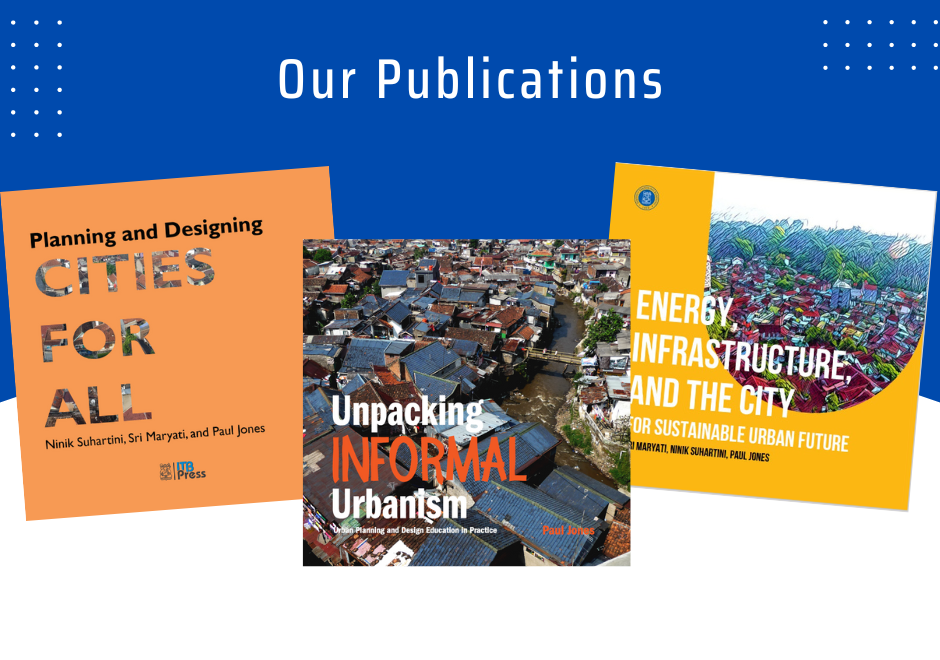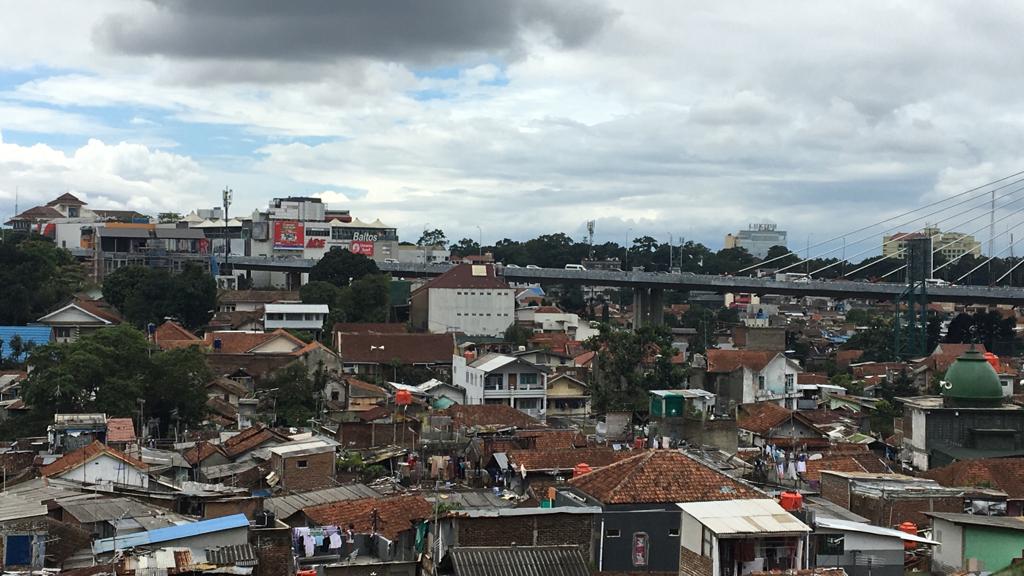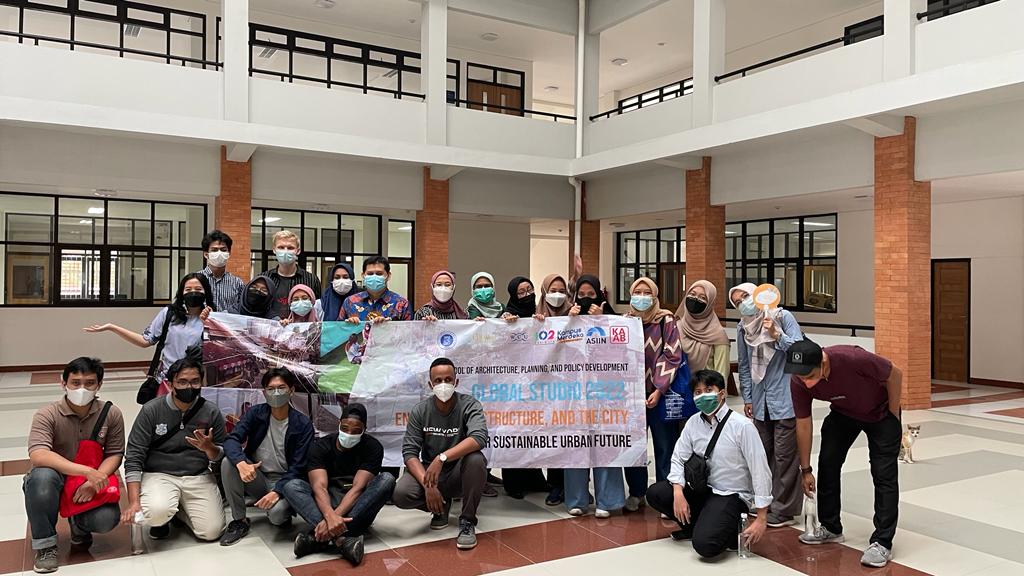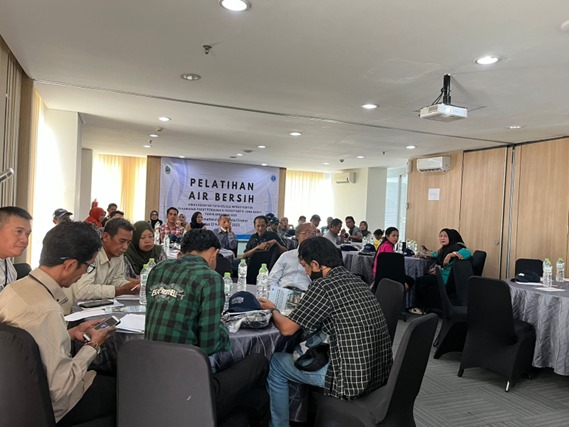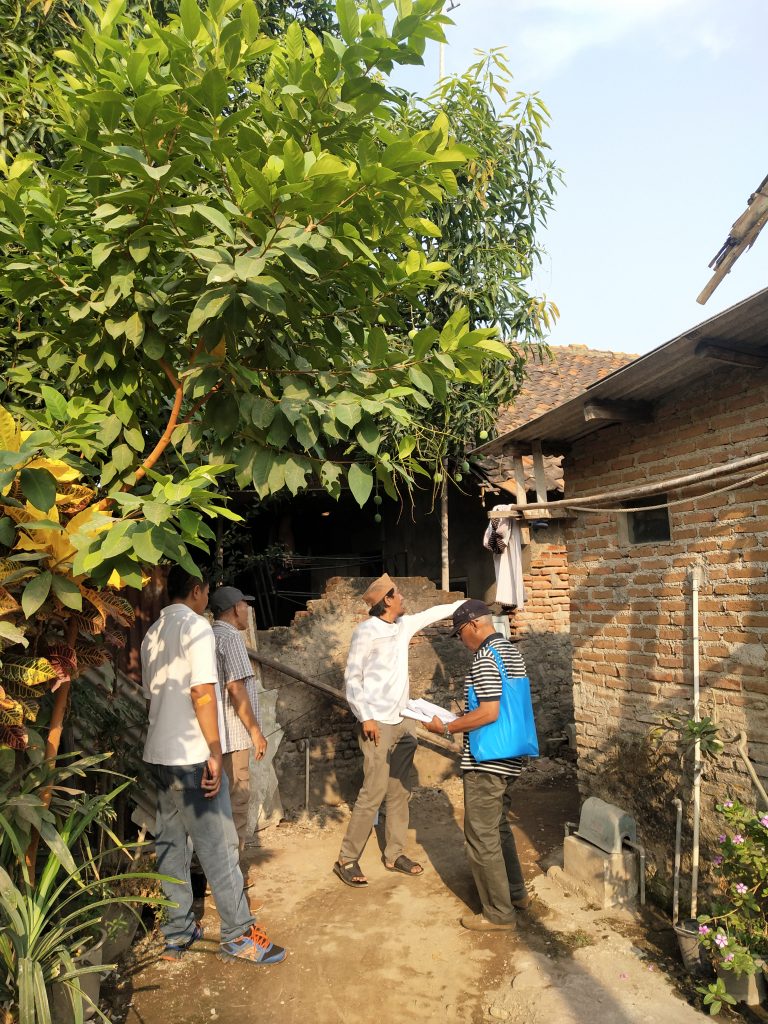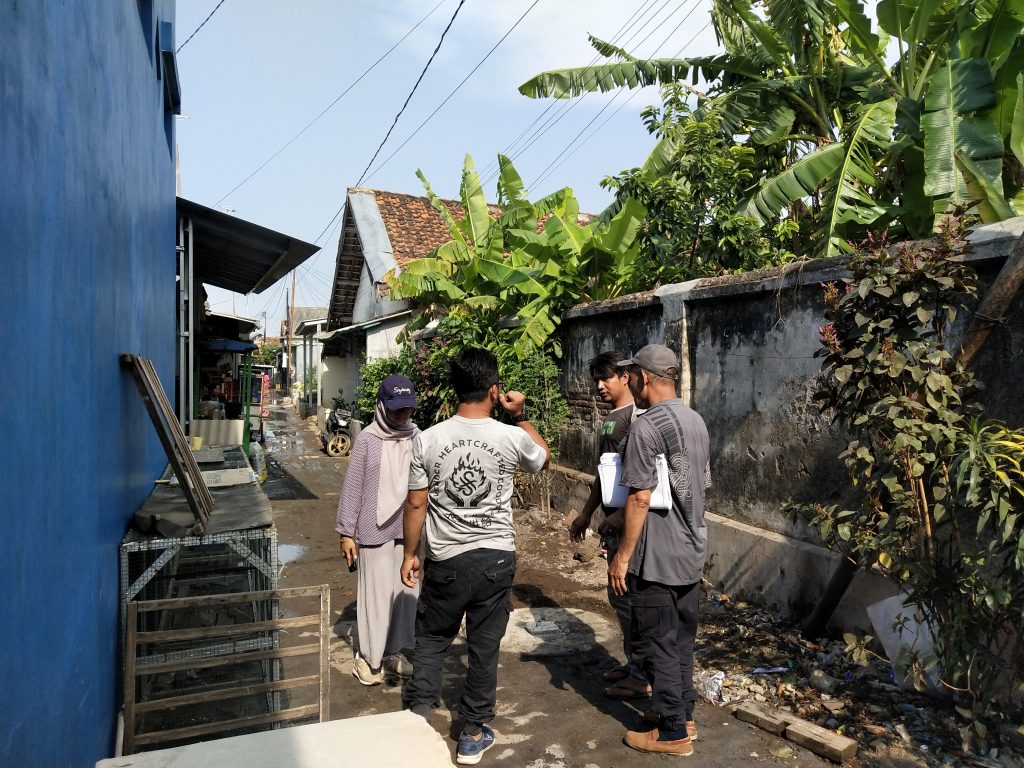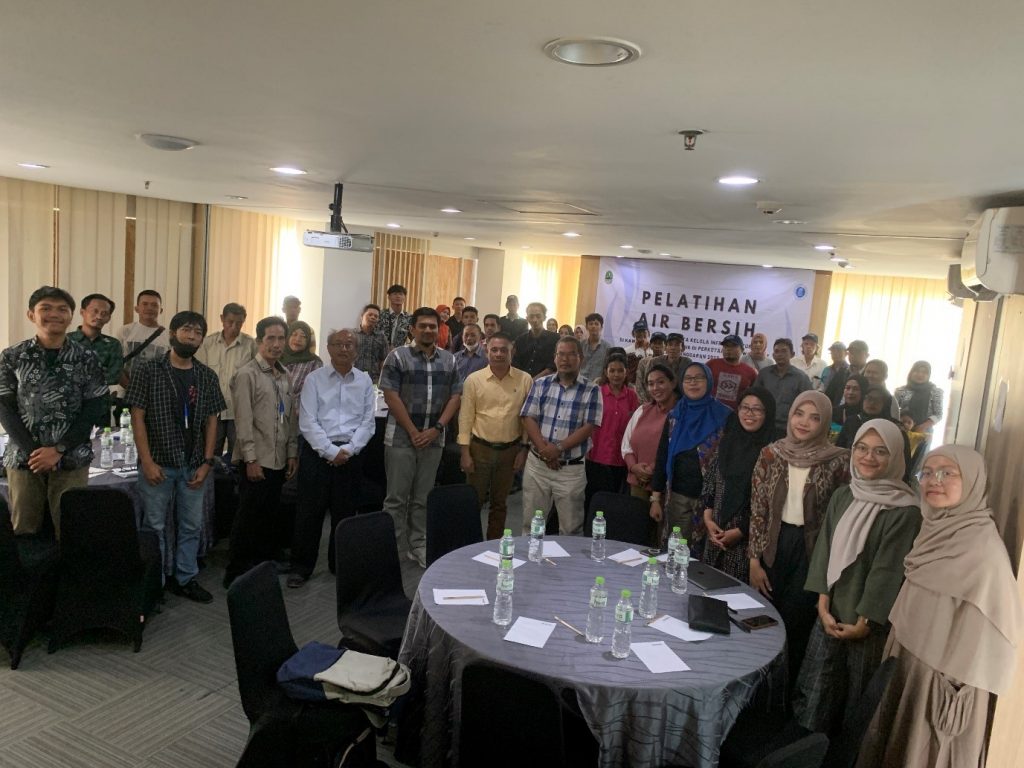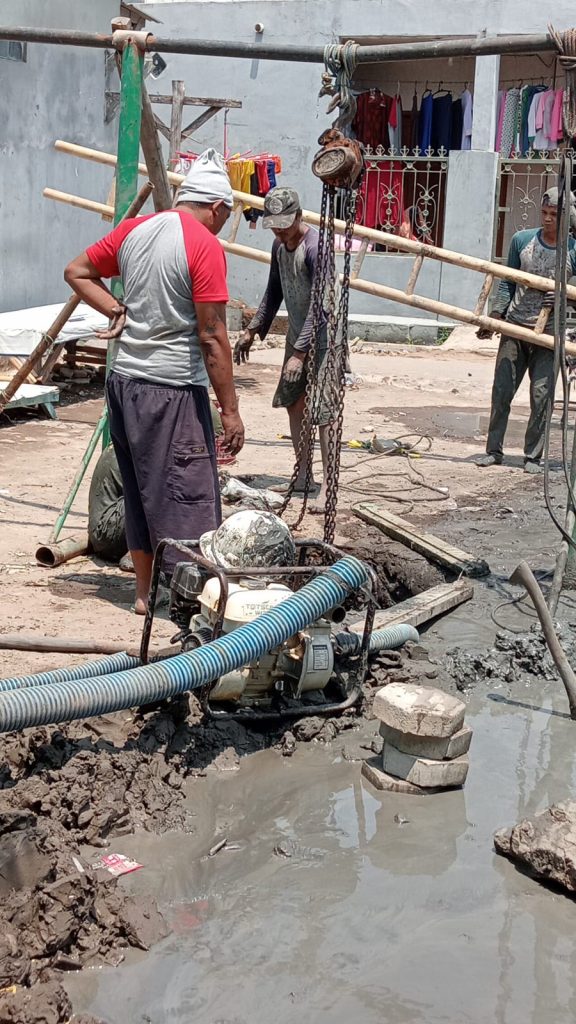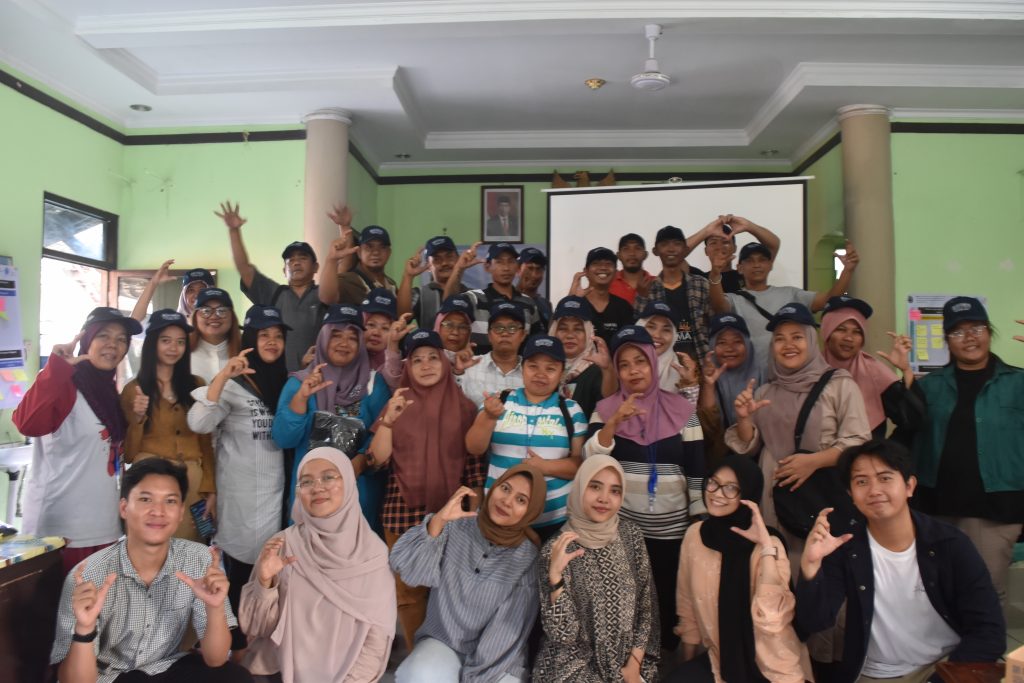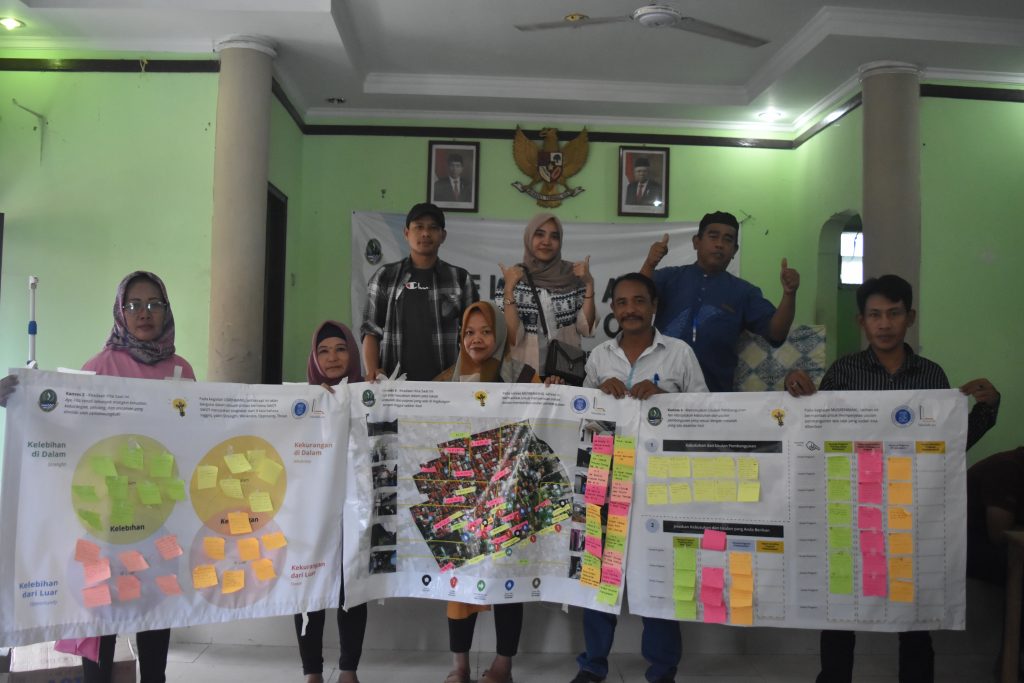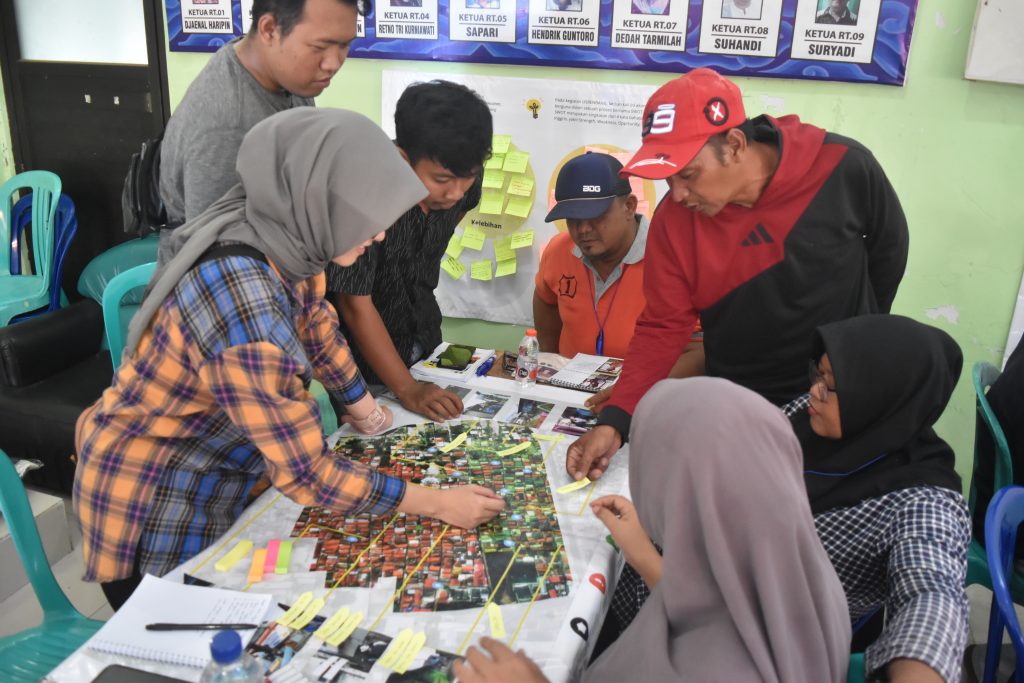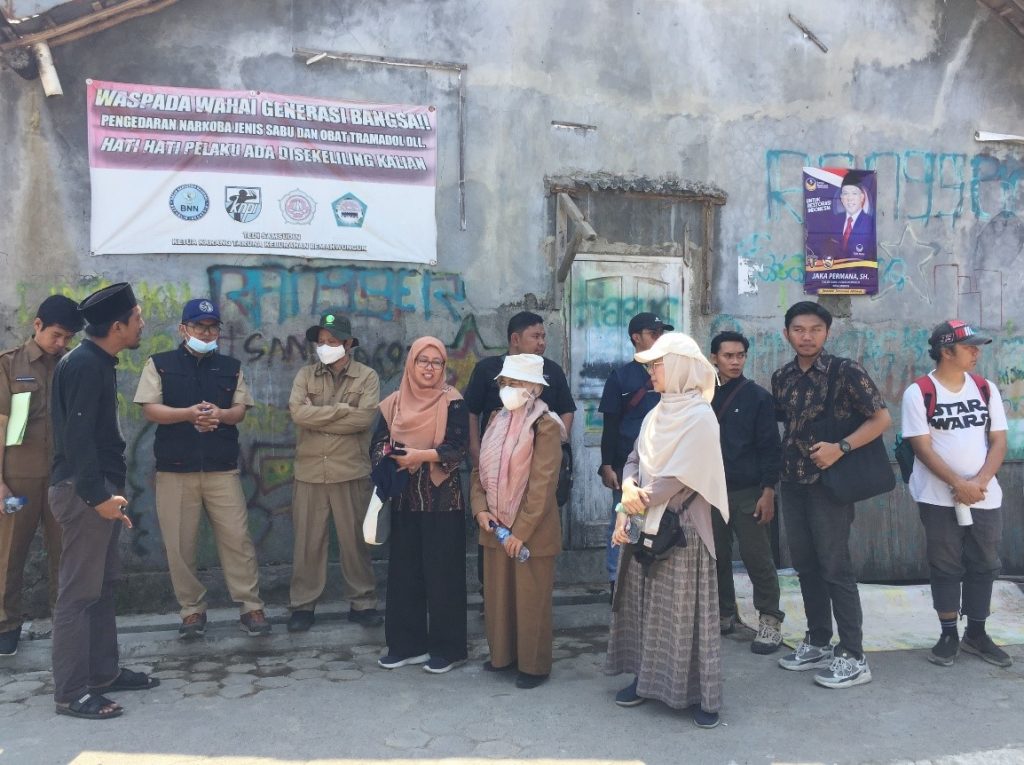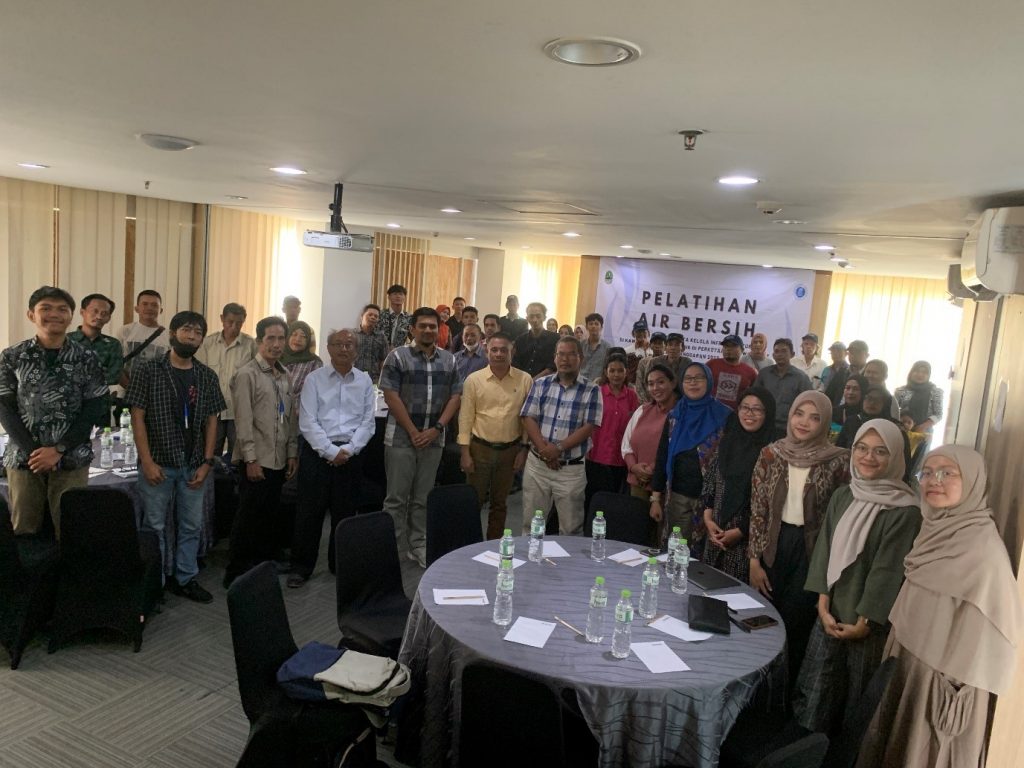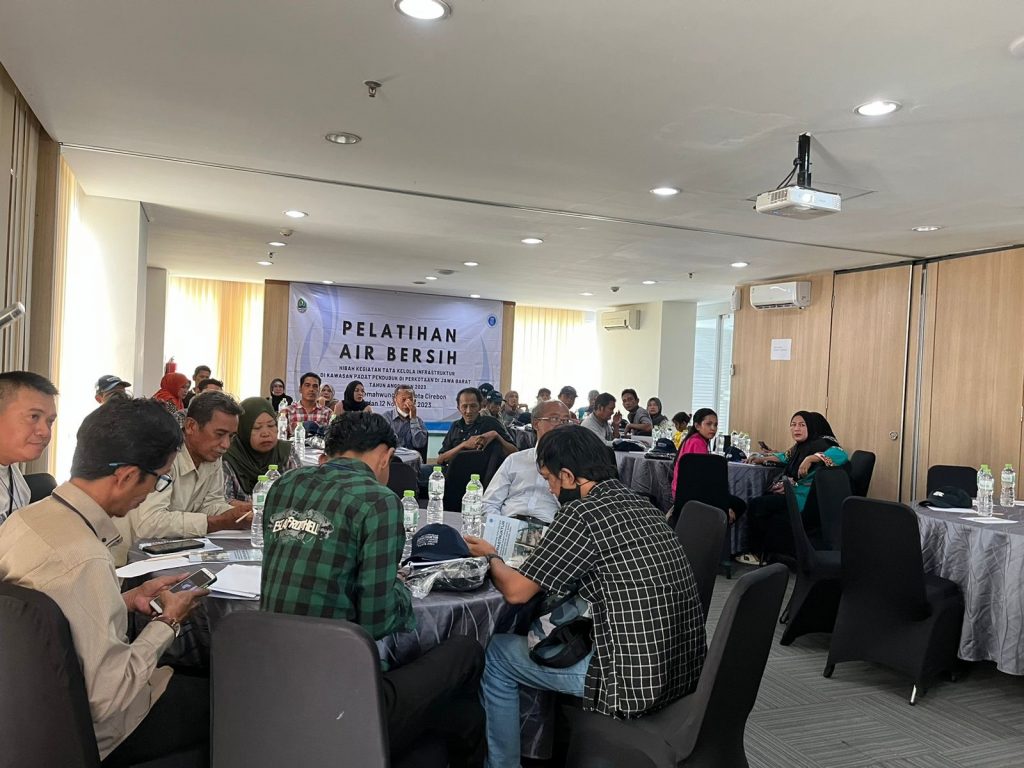Global Studio 2023
Fostering Sustainable Urban Future
SAPPD Global Studio is an annual international event led by Urban Regional Planning Program of School of Architecture, Planning and Policy Development (SAPPD) ITB since 2015 and aiming at providing essential knowledge and professional skills for future planners and designers to plan and design urban development projects in the Global South.
Since 2015, SAPPD Global Studio has welcomed hundreds students from global partner universities and receiving several international awards including World Urban Solutions by World Urban Campaign 2016 and Student Award Special Mention in ISOCARP World Congress 2020.
CREDIT EARNING
Final-year bachelor’s and master’s degree students can earn 4 credit points (56 hours) by applying for PL 6009 International Studio on Planning and Design in the Global South (4 Credit Points).
Teaching Team:
Coordinators:
Dr Ninik Suhartini (ITB)
Dr Luke Hespanol (Sydney University)
Teachers:
ITB: Prof Pradono, Prof Haryo Winarso, Prof Delik Hudalah, Dr Heru Purboyo, Dr Sri Maryati, Dr Adiwan Aritenang, Dr Paul Jones, Dr Mochammad Faisal (CORE Indonesia)
Partners: Prof Saswat Bandyophadyay (CEPT India), Dr Silvia Covarino (UoG Cairo), Dr Paulo Silva (Aveiro University), Prof Deden Rukmana (Alabama University).
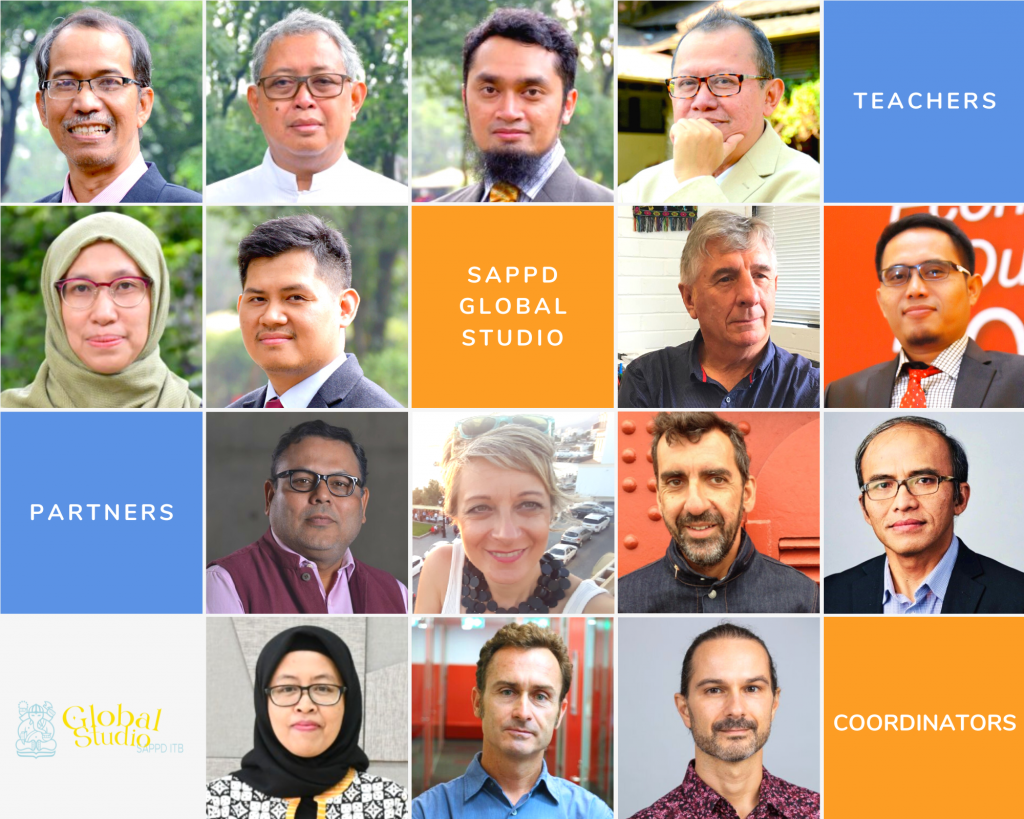
STRUCTURE AND SCHEDULE
Teaching structure of the studio including lectures, field visit, studio work, and student assignments.
The assessment comprises 2 main parts which are group poster and individual essay, focusing on issues and problems of the settlements in relation to SDG 6, 7 and 11 and nexus to New Urban Agenda (NUA), also your individual insights on case study taken.
ITB will conduct the studio in an intensive mode 17 – 28 July 2023 (offline) | 29 July – 20 August 2023 (hybrid). The unit’s schedule will follow ITB-IVC regulations.
LOGISTICS, TRAVEL
ARRANGEMENTS AND FEES
Overseas study will take place during Weeks 3 and 4. Students also have the option of continuing a self-guided trip in Week 5. During the overseas study, accommodation will be made for students that need to attend other classes on-line.
For visa requirements and COVID-19 related arrangements see:
https://www.imigrasi.go.id/en/covid19/covid19-/#1644467223061-48133b34-3915.
We recommended you to open it by Google Chrome and using auto-translate feature. Please contact SAPPD
Studio Organizers for more details.
Studio Coordinators-Dr Ninik Suhartini
Email : GlobalStudio@itb.ac.id
Register via: https://admission.itb.ac.id/registration/nonreguler
Implementation of SAPPD Global Studio
in Kampung Lemahwungkuk, Cirebon City (2023)
Summary
Results of SAPPD Global Studio have reached a new level of implementation on the ground by receiving financial support from West Java Provincial Government via Competitive Grant Schemes, conducted in 2023. The grant was led by Dr Ninik Suhartini and Prof Heru Purboyo, academics of SAPPD ITB and involving alumni of the studio in its organization. The project includes three main parts including: developing basic infrastructure for water and sanitation at a communal level, community empowerment in planning, monitoring and evaluation of the built infrastructure, developing a mobile app to map and organize infrastructure database and planning at a community level as well as increasing multistakeholder involvement in improving quality of life in informal settlements and achieving SDG 11.
The project comprises 4 sub-projects as follows
- Community Water System Infrastructure Development
- Community Wastewater System Infrastructure Development
- Infrastructure Community Based Monitoring Application Development
- Community Based Empowerment for Sustainable Infrastructure
Community Water System Infrastructure Development
All activities carried out starting from contractor orientation in the field were carried out to update the work location of the clean water infrastructure project as many as 12 units spread across 10 locations with a community target of 96 families in RW 5 and RW 6 Lemahwungkuk Village, Cirebon City. Construction activities will be carried out on October 24, 2023, this activity is very important to do of course in improving basic infrastructure needs, especially clean water for the people of RW 5 and RW 6 Kelurahan Lemahwungkuk, creating jobs for the local community which of course can improve connectivity and community mobility and stimulate economic growth. The supervisor, the contractor (PT. Arkanindo) and the active participation of the local government with the involvement of the community as Human Resources (HR) are key in the development process. Monitoring of the development process, which included well drilling, pipe installation, material procurement, construction, and training for the community, was conducted as a necessary activity. Especially training activities related to clean water that are attended by stakeholders help increase the understanding and insight of the community, especially the beneficiaries.
Community Wastewater System Infrastructure Development
The wastewater system in Lemahwungkuk District is expected to have 15 units spread over 5 locations by the end of 2023. Together with a verifier and the community leader, the program began with a field study to assess the current state of RW 5 and RW 6 Lemahwungkuk District, Cirebon City. The outputs after a several site visits are fixation of the development location for communal wastewater system and the potential land sustainability. Then, the construction started on 18 October 2023 with CV Arkanindo Utama. At the second week of November 2023, 5 Bio-septic tank with 2000 m3 capacity and 2 Bio-Septic tanks with 1000 m3 capacity already been built.
Infrastructure Community Based Monitoring Application Development
The MISTAR (Smart Infrastructure Community) application is motivated by the difficulty of obtaining data from an area, especially informal areas related to the availability and condition of existing infrastructure in the area. The MISTAR application is expected to be an android-based infrastructure governance mobile application that can be operated easily to support the continuous availability of data that can be updated based on community participation. This application can be used for data collecting or monitoring and evaluation of infrastructure use in an area, so that it can help stakeholders in managing infrastructure in a sustainable manner.
Community Based Empowerment for Sustainable Infrastructure
We believe that to achieve Sustainable Development we need to empower the capability of the community. Therefore, the program also triggered and empowered the people living in Lemahwungkuk District with giving a comprehensive training and hold on the ‘gotong royong’ principle (Indonesia’s terms meaning working together to achieve a communal goals). The training programs categorized into 4 groups clean water system infrastructure development training (2 days), wastewater infrastructure development training (2 days), using infrastructure monitoring application training (2 days), and participatory planning for self-governance training (6 days and 3 days accompaniment).
The program started with socialization to 1.081 local people which past the initial targets (1.021 people). The socialization was held in three days in August 2023. The first training held in this program is the self-governance training with 30 local people as the participants on 16th and 17th September continued to 22nd and 24th October 2023. The training held collaborate with NGO, Lokalab.co (Yayasan Media Inovasi Keruangan Indonesia). After the intensive 4 days training, the participants were doing self-monitoring for the clean water and wastewater infrastructure. At the first week of December 2023, they will have another training to wrap up.
Then, the training for clean water and wastewater infrastructure held on 4th and 5th November 2023. The speakers on this event are Ms. Vivi Asmara (Topic: Sustainable Clean Water and Domestic Wastewater Infrastructure), Mr. Maman Suryaman (Topic: Community Financing for Clean Water and Wastewater Infrastructure), and Mr. Firdaus (Topic: Best Practice in Cirebon City). The leader of the district (Lurah and Camat) also came to welcome the participants. The total of participants of this training reaching 70 people (40 persons as the participants of clean water training and 30 persons as the participants of the wastewater training). After having lectures from the speaker participants had chance to try the application for community financing that have been developed by Mr. Maman facilitated by 5 facilitators.
